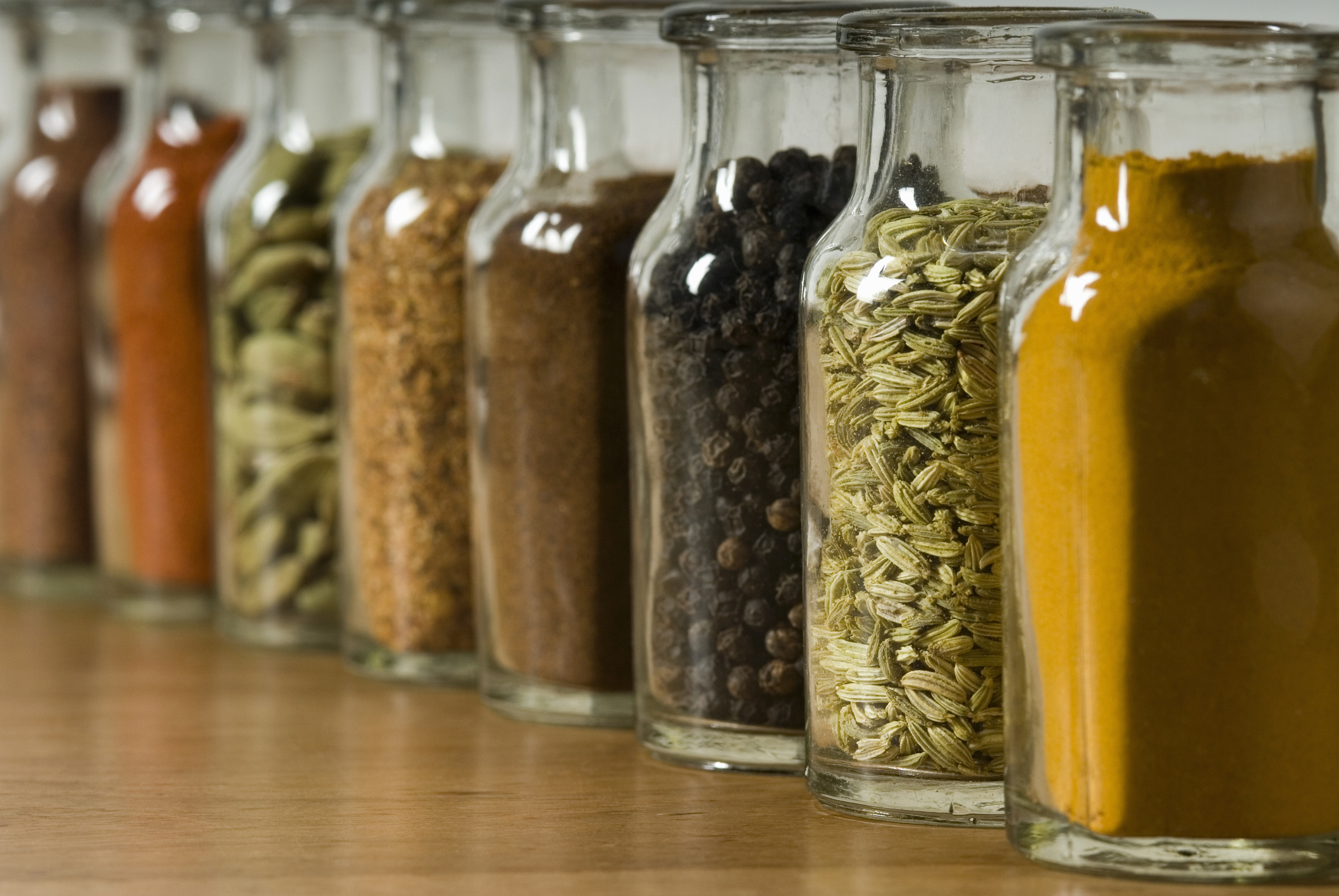This post originally appeared in Pantry Goals on Food52.
We are all guilty of it. Go home right now and open your spice drawer, or cabinet, or box, or what have you. Check the expiration dates. Odds are, most of your spices are past their prime. If you’re like me, you might not remember when you even bought some of the jars in there. The cream of tartar may or may not be older than your couch.
Here’s the bad news: When spices get old, they become pale imitations of their former selves. Will they make you sick? Absolutely not. But your cayenne’s zip will become less zippy. Your ginger will become lackluster. And if you care about packing the biggest flavor punch into all of your food (and if you’re here, you probably do), investing in fresh spices is something that’s at least worth trying to do a slightly better job at.
So let’s talk numbers. How long do your spices last, really? “If you’ve asked that question, they’ve been there too long,” said Lior Lev Sercarz, owner of spice shop La Boîte and the veritable “Spice King of New York.” But really: Pre-ground spices usually pass their prime after a year or so, while whole spices are good for two to three.
Old, expired spices won’t make you sick — but they will have significantly less flavor. According to Sercarz, as spices age and are exposed to oxygen, their essential oils evaporate and the spices dry out, effectively becoming less vibrant. Once opened, humidity can also get in and spoil the flavor profile.
Not sure when you bought them or if you should toss ‘em? Use the smell test: Spices should have a bright, strong odor; if they don’t smell like much, they probably won’t taste like much either. “Every once in a while, open a jar, take a whiff, and take a little taste,” said Sercarz. “If the spice has no smell or taste, get rid of it.”
Now obviously you’re not going to go out and chuck your whole spice cabinet and drop a few Benjamins replacing them all. But there are a few tips you can follow to streamline your spice buying/management from here on out:
Buy whole spices as often as possible, then grind (& toast) to order
Yeah, it’s kind of a pain, but grinding spices to order actually does make a difference. Because they’re less exposed to oxygen than pre-ground spices, whole spices will stay good for an extra year or two. Plus, have you ever had a friend/romantic interest over for dinner and started your cooking process by grinding some whole spices in a mortar and pestle? They will be very impressed.
If you don’t want to mess with that mortar and pestle nonsense, you can invest in an electric spice grinder (or repurpose a cheap coffee grinder). I don’t recommend moonlighting your coffee grinder as a spice grinder, unless you like a faint hint of star anise in your morning brew. (Which, now that I say it, actually might be pretty good…)
Buy smaller quantities
Sercarz’s No. 1 tip for optimizing your spice cupboard is to “buy as often as possible, in the smallest possible quantities.” That way, you have a good chance of using up your spices before they lose their oomph. Some spice brands will offer half- or quarter-size jars, or you can…
Buy from the bulk section
More and more grocery stores (and not just the fancy shops) are getting bulk spice sections. If you know you want just a small amount of spices for an upcoming recipe, especially if it’s a type you know you won’t use too often (hi, allspice), buying in bulk is a great option. You can measure them out into mini-bags or, if you want to be a real overachiever, you can save empty spice jars to fill. Just make sure to label them with some tape so you don’t get confused about why there’s cumin in a cinnamon jar.
What to do with (near-)expired spices?
If you’ve noticed that you’ve got a few jars of spices that are starting to near their expiration, first try to use them up by cooking and baking with them in as many ways you can think of. Have a whole jar of cumin? Make chili! Swimming in paprika? One word: paprikash. Got a boatload of cinnamon? Turn it into snickerdoodles, tagines, and breakfast puffs.
- If you have just a few dashes of this and that, Sercarz suggests making your own spice blends: Combine ginger, turmeric, and nutmeg for a spice to sprinkle on granola; or mix coriander, cardamom, and cumin for a take on garam masala. There’s no wrong answer here.
- If your spices are well past their expiration date, you can definitely still use them: You just might want to add more than the recipe suggests, since the flavor will be muted.
In the end, the best way to ensure your spices are always fresh is to shop smarter. Instead of buying all the spices A to Z from the supermarket aisle and stocking your pantry, only buy what you need when you need it, preferably in small quantities. Figure out what spices you tend to turn to most and make sure you have that one on hand; others, you can buy just when you need it for a recipe.
“There’s no ‘must’ to buy certain things,” said Sercarz. When it comes to spices, it’s a matter of the heart — and, of course, the taste buds.



